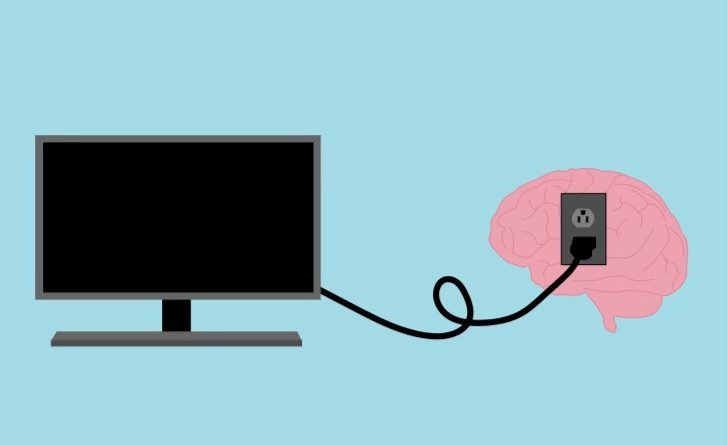Virtualism Series: Alina Rosati
At the end of the fall 2021 semester, Dr. Bill Meyer’s Class on Early Modern Philosophy was challenged to reflect on today’s epistemological crisis. The tendency to gather knowledge and solidify our beliefs based on unverified online information has become increasingly prevalent, being described by Dr. Meyer as creating a “post-fact, post-truth world.” To cultivate discussion around such a topic, the Echo is sharing a series of students’ exceptional essays on this philosophy of virtualism.
By virtualism, Dr. Meyer means a movement where society seems to be trusting the internet more than their own thoughts/experiences or those of experts. The current virtualism phenomenon is heavily bolstered by like-minded individuals being able to share media with one another. Also, the various pieces of media reinforce each other. For example, if you are fed media boosting covid misinformation, it is highly likely you are also being fed media that reinforces pro-life mentalities. It becomes a connected mindset that distrusts COVID and stands against abortion. This constant reinforcement, which is also very often done digitally between people who know each other in the real world, has somehow legitimized itself into an explosive movement where the “truth” is finally coming out. Further, these “facts” are never shown in the news, just on the internet, which somehow proves their legitimacy.
All regions that subscribe to the notion that the early 2000’s version of America was the best version were in real danger of being underestimated and becoming radicalized. Then Donald Trump ran for office and won. But Donald Trump was just a catalyst. The internet, memes, and Facebook are what has truly radicalized the anti-future, anti-science Americans. I think maybe it was the evolution of Facebook and memes. In the beginning it was only people you knew, then organizations/big media names started making cool, factual posts. Then, regular people with excellent computer skills were able to make fake posts that appeared to be bona fide. Then well-funded disinformation movements began. I 100% believe that the internet is the root of the epistemological crisis.
I returned to college because of this crisis, and I have spent a significant amount of time this semester trying to learn the academic concepts/vocabulary that support what I have seen over the last five years in the normal blue-collar world. There is no denying that the Trump supporters are the ones who are the most detached from fact. When Trump ran in 2016, I was not shocked he won. I try to remember that time more now, but I was 19 and I really wasn’t paying attention. I do remember knowing so many people who felt heard by Donald Trump for the first time in a long time. The fact that the election is now remembered as a huge shock, even for Hillary Clinton herself, is shocking to me. I think mass media forgot about all the poor, middle-class workers who lived in rural areas. For example, I spent most of my childhood in Loudon, and when immigration began drastically increasing, my town’s population doubled. It was very, very difficult for everyone. Social psychologist Jonathon Haidt, a man I learned about this semester, says that immigration without assimilation will almost always result in an authoritarian response. I feel that I have seen that firsthand. Yet it was never really acknowledged as a crisis being experienced by American people. Donald Trump was able to win by rallying a population that had been largely left out of the conversation. I assumed for a long time that only Trump supporters were being taken in the disinformation movement through internet manipulation. I chalked a lot of this up to education levels and cultural experience.
However, members of my own family echoed QAnon ideas to me repeatedly during the election. (Since Donald Trump lost, they’ve largely lost interest in politics and I don’t consider them to be a part of the Trumpism movement.) But when I mentioned QAnon at Thanksgiving, none of them knew what I was talking about. They believed the ideology less than a year before yet had no idea about the entire conspiracy called QAnon, which means they were radicalized without ever knowing what they were supporting.
Also, In January of 2020, I was in Seattle visiting family, and the 60 Minutes episode on Jeffrey Epstein aired. My grandfather joked that Donald Trump had Epstein killed. But up until my visit, I had only ever heard the conspiracy that Hillary Clinton had him killed. When I told him Tennessee’s Clinton theory, he was as shocked as I was about Washington’s Trump theory. The conspiracy that Epstein was killed off to protect high-up officials was clearly supported nationally, but which politician was the evil mastermind depended on your region.
Even more alarming, a classmate (a very smart girl) here at Maryville College recently questioned the authenticity of the history we were studying. Her doubt seemed to stem from the widespread phenomenon in which young Americans are starting to prioritize recognition of U.S. hypocrisy and social propaganda. A movement commonly referred to as “Woke.” However, after a consensus that the literature could be trusted, she easily moved on and substantially contributed to the group. It was shocking to see a college student doubt her curriculum, but it must be noted that she was willing to listen to others and ultimately accepted the information as fact.
These experiences have led me to believe the crisis is much deeper than the ideology of Trumpism. It seems to be national. I’ve seen it in multiple regions throughout multiple age groups. So, it must be the internet. It’s the only thing that unites all of us. However, I think Trump/QAnon supporters are the most at risk. They are also the ones who are making real legislative changes based on fictitious information. I think this ideology must be better understood and disarmed before we can tackle the Epistemological Crisis itself.

